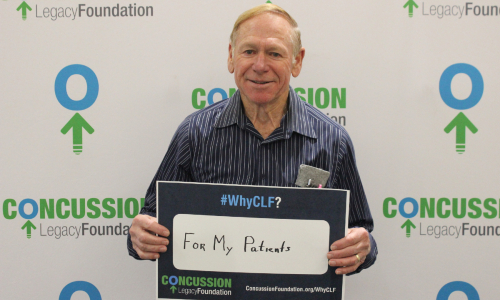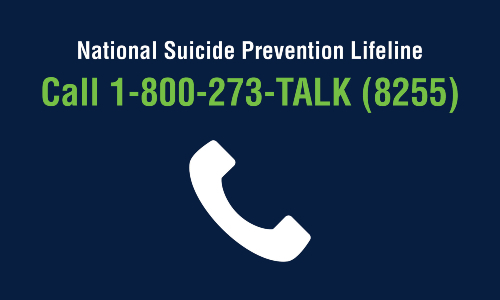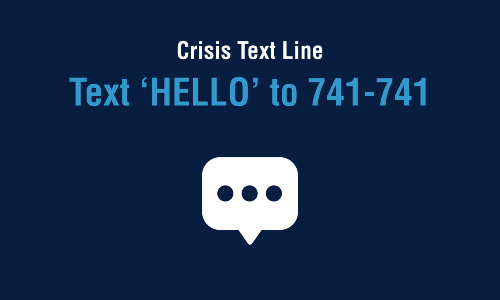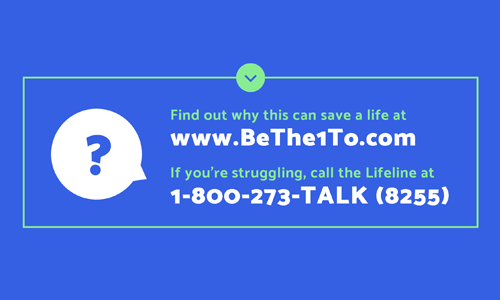Concussions and Suicide: What We Know
By Dr. Robert Cantu
CLF co-founder and medical director
Suicide is one of the leading public health problems impacting individuals, families and communities. According to the CDC, suicide was the tenth leading cause of death overall in 2019 and the second leading cause of death among individuals between the ages of 10 and 34. The brain injury community is disproportionately affected by suicide, and the Concussion Legacy Foundation is here to help you help those you love.
Studies show individuals who have experienced a concussion are at a higher risk of suicide. A 2018 study published in the Journal of the American Medical Association found those who were diagnosed with concussion or mild TBI were twice as likely to die by suicide compared to those who had not been diagnosed with a concussion or mild TBI. A 2021 study published in the Journal of Neurotrauma revealed young people under age 26 are especially vulnerable to novel psychiatric disorders after concussion. The study found the share of subjects reporting suicidal ideation jumped from 1.4 percent at the time of their concussion to 4.7 percent 180 days later.

It is important for parents, coaches, teachers, friends, and teammates of concussed individuals to be prepared to support a loved one’s mental health after a concussion. Symptoms of concussion can include anxiety, depression, and panic attacks. People suffering from long-term effects of concussion, especially children and adolescents, can also experience feelings of isolation when they are forced to be away from their athletic teams, activities, and school during their recovery.
If you are the parent, coach, teacher, friend, or teammate of someone who may have suffered a concussion, you can help keep them safe by making sure they are removed from activities that could further injure their brain. Your opportunity to help doesn’t stop there, though. You can also play a crucial role in their recovery by making sure they feel supported, cared for, and heard – even if they are away from you or your group. A check-in text can go a long way to help someone feel less isolated.

While risk of suicide is elevated after a concussion, it is imperative to know it is not common. Research has shown over 99 percent of people who have a concussion do not experience a suicide-related event. Although concussion increases the relative risk of suicide, the absolute statistical risk remains very low.
So – does concussion cause suicide? The short answer is no. While there are risk factors and warning signs for suicide, a suicide cannot be attributed to one single cause. According to the American Foundation for Suicide Prevention, suicide most often occurs when stressors exceed current coping abilities of someone suffering from a mental health condition. The symptoms of concussion can contribute to suicidal ideations.
Suicide is preventable. It is not inevitable for anyone. Those who are suicidal should seek the help of mental health professionals. Those who are worried about a friend or a loved one who may be suicidal should know there are resources available to support them.
Below is a list of life-saving resources for someone who may be suicidal:
- The National Suicide Prevention Lifeline at 1-800-273-8255
- Crisis Text Line at crisistextline.org
- Veterans Crisis Line at 1-800-273-8255 PRESS 1
For those who are worried about a friend or loved one or for those who want to do their part in preventing suicide, check out these important resources:
- The Five #BeThe1To Steps for supporting someone who may be suicidal
- Save.org’s warning signs for suicide
- CLF’s “Helping Concussion and Suspected CTE Patients in Crisis” webinar
- CLF’s Concussion Hope campaign for people struggling with the outcomes of concussion
We have lost far too many people to suicide. Tragically, many of our Legacy Donors whose brains have been studied at the VA-BU-CLF Brain Bank were victims of suicide. Research is ongoing to investigate the links between concussion, CTE, PTSD, and suicide to help us find treatments for the effects of brain trauma and prevent future tragedies.

For now, let’s do our part to prevent suicide. Memorize the crisis lines and warning signs and learn the best practices for helping someone through a mental health crisis. Above all, know help is out there and you are not alone.

